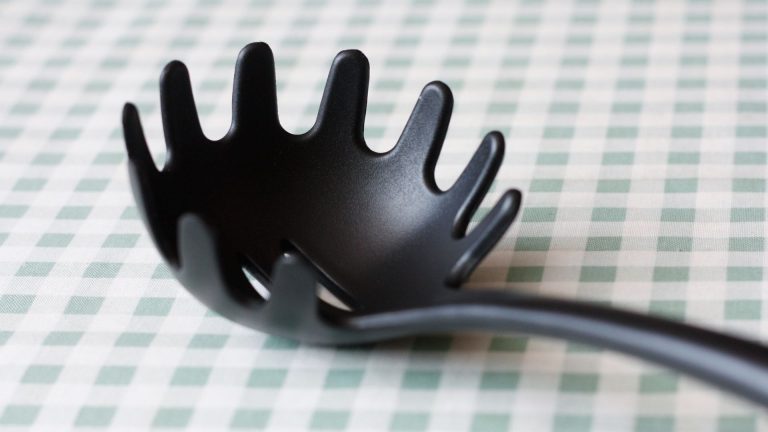“Once the medications started working, I started getting to know my baby again.” For many years the son was not himself

It dawned on me that my son had not been himself for many years. There is a lot of talk about depression, but I have never heard that a child can have bipolar disorder. Even today, when I say that Patryk suffers from it, I often hear that I think I am exaggerating. For a long time, I blamed his behavior on “growing up,” says Ewa, mother of 15-year-old Patryk.
It’s hard for Ewa to decide to talk. Even though his family, friends, school teachers and colleagues know that Patryk has been diagnosed with bipolar disorder, he is afraid that someone will laugh at him or tease him. He decides to tell his son just so that another child does not have to suffer like he did, waiting several years for diagnosis and treatment.
Because living with this disease without treatment means suffering. Sometimes so strong that you no longer have the strength to live.
Mood swings, crowded thoughts and increasing tension
The first symptoms appeared when Patryk was 11 years old. – His temperament changed cyclically: from a quiet, calm boy he became very active, sociable, and at the same time self-confident and arrogant. He slept 3-4 hours a day and was not tired. He couldn’t eat anything, he didn’t feel hungry at all, and he didn’t drink much. And after a few weeks, a 180-degree change came: he became much calmer, slept a lot, and didn’t want to see anyone. It worried me, but I didn’t think it could be a disease, says Ewa.
She put the changes in behavior down to growing up, meeting new friends (hence hundreds of new ideas), and then being tired and tired. She tried to consult a psychiatrist, but there was a pandemic and lockdowns, and there were mainly teleconsultations. The psychiatrist didn’t see any reason for much concern, and she didn’t think it was important to tell the doctor that her son changed his hairstyle and dressing style every few months. It seemed to be more of a teenager’s rebellion than a symptom of any disease.
And these were becoming more and more serious. When my son was active and aroused (today Ewa knows it was a manic episode), he slept for several hours and did not feel tired. He couldn’t stay at home, he could walk 10 km and not feel the need to rest. Teachers at school saw this agitation, difficulty concentrating, but also an increasing tendency to enter into conflicts with peers. And after a few months his character changed completely. He slept for 12-16 hours, and there was great anxiety, a feeling of emptiness, and difficulty concentrating.
The worst was when he entered high school. There were more and more days when he was unable to go to classes. – During periods of excitement, he was very self-confident and arrogant, and conflicts at school with friends and teachers intensified. Such activity is not a positive state; extreme irritability, crowded thoughts, problems with concentration. And a month later came severe depression. These changes and cyclicality were so clear that I slowly started to put it together, says the boy’s mother.
Diagnosis of bipolar disorder (BD)
“My son has bipolar disorder” – this diagnosis was made more than 3 years after the first symptoms. – It was really bad then. The mood swings became more severe, between mania and depression my son no longer had “normal” moods. From hyperactivity there was a sudden 180-degree turn and depression appeared. Only it wasn’t “just-so-sad.” Patryk slept for 16 hours, his whole body hurt. When the mania started, he had so many thoughts that he said he couldn’t focus on anything, Ewa recalls.
He was given medication, but it didn’t help right away. With this disease, you need to know how and when to modify your treatment when your mood changes. – The first months were difficult, but then we found a wonderful doctor. The medications were well selected and modified on an ongoing basis, and we were able to contact the doctor whenever necessary. Once the medications started working, I started getting to know my baby again. It occurred to me that I hadn’t really known him for many years. Only now did I see what my son was really like, no depression, no mania, says Patryk’s mother.
Treatment and coming to terms with the diagnosis
It is not easy to come to terms with the diagnosis of bipolar disorder in a child and the need for treatment.
Ewa: – At the beginning, I was afraid that my son would be pigeonholed for the rest of his life; I was also afraid whether the drugs would have negative effects. However, he was already in such a condition that medications were necessary. We previously tried psychotherapy, but bipolar disorder is a biological problem; it’s not like you just need to change your thinking and you’ll start sleeping normally. During the worst period, I had strong suicidal thoughts. My son felt tense and anxious all the time. He no longer had the strength, it was exhausting him, it was hard for him to even concentrate on the conversation. Untreated bipolar disorder is terribly difficult. If it is treated, you can live with it.
Finally, the son feels at peace, and that is the most important thing.
Life in a new way
What is Patrick like today? – Wonderful, sensitive, calm, organized! He has a lot of passions and can finally pursue them. Of course, there are good and bad days, but there is no comparison to what was before. We started functioning normally, says Ewa.
The key is well-selected treatment, knowledge about the disease and contact with a doctor. Patryk learned what symptoms he should pay attention to when it is necessary to contact a doctor and modify the treatment.
Ewa: – It is very important to catch when something changes in order to be able to modify the dose of the drug as quickly as possible. However, this happens much less often than before. Periods of well-being are much longer, and if behavioral changes occur, they are much less severe.
Teachers at school know about the diagnosis: thanks to this, they were able to understand his behavior and adapt their requirements to it.
The drugs are well tolerated and have virtually no side effects. Only sometimes the boy’s blood pressure is lower and he needs more time to wake up in the morning. His behavior does not show that he is taking any medications. He just functions like a teenager.
Ewa: – My son really appreciates the condition he is in. He wouldn’t want it to return to what it was: a constant feeling of anxiety and tension. When he was sick, the whole family was sick. If he didn’t sleep all night, I didn’t sleep either. Now we are back to normal. We can go on vacation, he can function like a normal teenager.
Patryk has passions, plans, friends, and dreams of nice studies in the future. He can enjoy life. Treatment helps.
Prof. Małgorzata Janas-Kozik, head of the Department and Clinical Department of Psychiatry and Psychotherapy of Developmental Age, Medical University of Silesia in Katowice: Only in the last 20 years has it been said that a teenager may have not only unipolar affective disorders (i.e. depressive disorders), but also bipolar disorders. However, approximately 20-30 percent adults with bipolar disorder describe that the first symptoms appeared in their adolescence, i.e. at the age of 15-17. It usually takes several years of observation before the correct diagnosis is made.
Parents should always pay attention to the change in the behavior of the child, who up to a certain point fulfills the role of daughter/son, friend, student, takes care of personal hygiene, has no problems with eating, does not engage in risky or defiant behavior, does not shorten distance from adults; and then it changes and the change covers many areas, is repeated and consolidated. In addition, there is a disturbed circadian rhythm, e.g. day-night alternation, shortened night sleep, disturbed falling asleep phase, or vice versa: excessive sleepiness not only at night, but also during the day. Other disturbing symptoms include emotional eating, increased appetite or complete loss of appetite. One symptom cannot be considered separately, attention must be paid to the entire context of the child’s behavior.
80 percent cases, bipolar disorder begins with a depressive episode. In teenagers, symptoms of depression may include low mood, tearfulness, depression, withdrawal from peer relationships, neglect of personal hygiene, clothing, isolation, and neglect of peer relationships. Treatment of bipolar disorder is necessary already in a child, because the disease has a biological basis.






